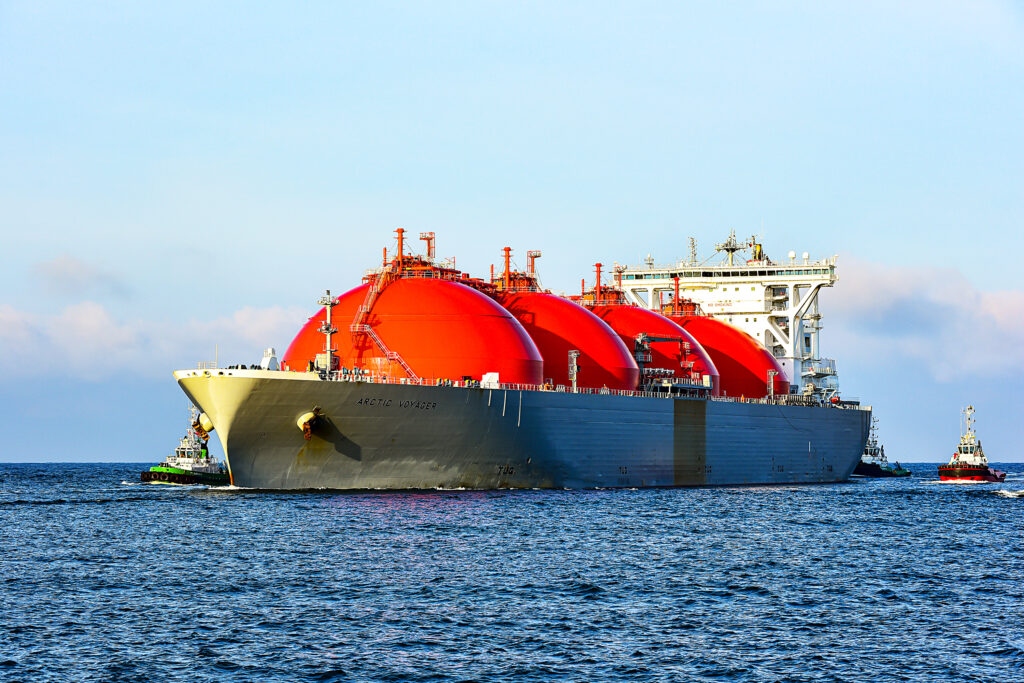The Green Minister for Economic Affairs and Energy, Robert Habeck, of all people, has to push the construction of LNG (liquefied natural gas) terminals. In doing so, he encounters strong resistance from environmental associations.
Green politicians oppose green environmental associations
Habeck has to solve the energy problem in the most difficult crisis of Germany’s post-war problems and for the time being sees no other option than to procure liquefied natural gas (LNG) and have LNG terminals built for it. It gets a little thicker, because a large part of the supplies will probably come from the authoritarian emirate of Qatar.
However, Habeck is a member of Bündnis 90/Grüne and was even one of two party chairpersons until his appointment as minister. His co-chair was Annalena Baerbock, and both relinquished the chairmanship in accordance with the statutes when they moved into their government posts. So no one can be greener than Habeck, and no sheet of paper has fit between the Greens and the environmental associations so far.

Image: Vytautas Kielaitis/Shutterstock.com
Time is pressing, because even before a German or EU-wide boycott of Russian gas, Moscow’s state-owned companies could turn off the gas tap, as they did with Finland in May 2022. Such a supply stoppage, which cannot be cushioned (due to the lack of an immediate replacement with LNG), would have the most severe effects on the economy and private households. Even the electricity supply would be at risk. Habeck has therefore introduced an LNG Acceleration Act, which Deutsche Umwelthilfe and other nature conservation organisations are now fighting against. They call it a “horror for the climate”, while the business community welcomes the law.
Current status of the development
As of 22 May 2022, the Bundestag has confirmed the LNG Acceleration Act and the Bundesrat has approved it. It can therefore enter into force as early as June 2022. In December, the first mobile LNG terminal is to go online in Wilhelmshaven. There are three key points in the law that are attracting the attention of environmental organisations:
- At most, it shortens the public hearing periods.
- Lawsuits against the law are now only possible in one instance before the Federal Administrative Court in Leipzig.
- For the mobile terminals installed first, the environmental impact assessment (EIA) is not required.
Robert Habeck had these restrictions written into the law because there is an overriding public interest in energy supply and because national security is currently at risk. Environmentalists would much rather see a rapid phase-out of fossil fuels (which is unrealistic), but Habeck also had it written into the law that all terminals must be converted to environmentally friendly hydrogen by 2043 at the latest. Where Habeck comes from he cannot and will not deny, and that is a good thing. The business community has nothing against hydrogen in principle, but the technology is expensive and probably not yet fully developed for large-scale industrial use.
Position of the environmental associations
In agreement with some lawyers, the nature conservation associations (WWF, Nabu, BUND) state for the record that the law specifically names twelve projects whose capacity far exceeds the quantities for substituting Russian imports and therefore the law is at least overambitious and environmentally harmful anyway. Therefore, they want to appeal against the first terminal in Wilhelmshaven. Deutsche Umwelthilfe has calculated that seven of the LNG projects alone will emit ~2.1 GT CO₂ (gigatonnes of carbon dioxide), which would use up three quarters of Germany’s “residual budget” for meeting climate protection targets. BUND demands that the gas demand be precisely determined before the first LNG terminals are built. After the Wilhelmshaven site, Brunsbüttel and Hamburg are to follow. The environmental organisations also sharply criticise the costs of construction: they are ~200,000 euros per day.
Position of the economy
The Federal Association of Small and Medium-Sized Enterprises and the Energy Association BDEW welcome the law. The experts from industry see no alternative to avoid an energy blackout-GAU.
